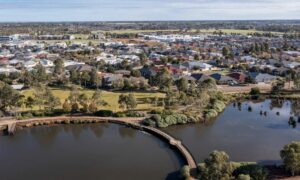This film presentation by Palace Nova Eastend Cinemas of the Teatro alla Scala production of Le Nozze di Figaro (The Marriage of Figaro) was captured live from La Scals in Milan, Italy, on 2 November 2016. The screening is long, running close to three and three-quarter hours which includes one comparatively short interval during which you can’t really afford to leave the cinema because there is still ‘action’ on stage and interviews with the creatives. It is sung in Italian with (badly executed!) English subtitles.
If it wasn’t for a stellar cast and a sublime performance of Mozart’s exquisite score, this production would have been a complete flop. Upon leaving the cinema, I chose a patron at random and asked her what she thought. She echoed my sentiment about the quality of the orchestra and the cast, and then went on to sink the boot into the director, whom she boldly declared to be an upstart! I wouldn’t go as far as that, but Frederic Wake-Walker’s direction was badly conceived and indecisive. It had one foot in Giorgio Strehler’s benchmark production that had been staged on and off in Milan for several decades – it borrowed lots, apparently – and the other foot paddled aimlessly around in an ebb and flow of wanting to give the opera a modern treatment to but not going far enough. Frankly, it was boring.
Wake-Walker commented in an interview that he wanted to bring out the ideals of the storyline but at the same time illustrate they were unattainable and that anything that was happening on stage was not real. For some mystifying reason, he thought that we wouldn’t be aware of that, and the production as a whole suffered as a result.
But the cast was excellent. Playing Figaro was Austrian baritone Markus Werba, and he was perfect for the role, but perhaps struggled a little at times in the lower register. In interview, he stated that the role itself was not difficult to sing, and the real challenge lay in portraying the character. His rich voice gave both depth and humour to the role, and his well-honed acting skills brought out the required mischievousness and come-what-may characteristics of Figaro.
The role of Susanna, the object of Figaro’s affection, was played by South African soprano Golda Schultz in what was almost a triumph. Her silky tones and beautifully relaxed vibrato imbued Susanna with both sensuousness and vulnerability, but she was less convincing in the recitatives.
As conductor Franz Welser-Möst said in interview, Mozart’s music demands precision and accuracy, and exposes faults ruthlessly. Werba and Schultz looked sexy and appealing alongside of each other – they were well matched. Spanish baritone Carlos Álvarez was credible in the role of Le Conte, but he didn’t quite reek the ruthlessness the role needed. French Mezzo soprano Marianne Crebassa played Cherubino superbly and was clearly a favourite with the Italian audience.
Everything in the production was eclipsed by German soprano Diana Damrau in the role of La Contessa, whose performance of “Dove sono” was sublime. She was captivating from the moment she took the stage.
Reviewed by Kym Clayton
Twitter: @theatrekym
Rating out of 10: 7
This was the fourth and final screening of Le Nozze di Figaro as part of the Palace Opera & Ballet cinema season, presenting the Royal Opera House, La Scala and Opéra National de Paris – exclusive at the Palace Nova Eastend Cinemas.






















